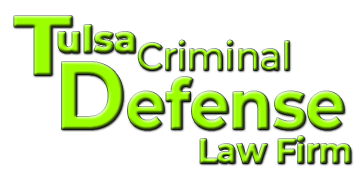Expert Witnesses Can Help You Win Your Case

Expert witnesses play a significant role in Oklahoma criminal cases. They provide specialized knowledge and opinions that can help clarify complex issues for the judge and jury. This article will help you understand the value and use of expert witnesses in your criminal case. This includes the legal framework, the selection and qualification of experts, and strategies for both prosecution and defense.
Expert Witnesses: The Legal Framework
The use of expert witnesses in Oklahoma is governed by the Oklahoma Evidence Code. An expert may testify if their specialized knowledge will help the trier of fact understand the evidence or determine a fact in issue as long as:
The testimony is based upon sufficient facts or data;
The testimony is the product of reliable principles and methods; and
The witness has applied the principles and methods reliably to the facts of the case. Okla. Stat. tit. 12 § 2702.
Expert witnesses can base their opinions on facts or data perceived by them or made known to them before the hearing, even if those facts or data are not admissible in evidence. Experts may give opinions without first testifying to the underlying facts or data, though they may be required to disclose this information during cross-examination. Okla. Stat. tit. 12 § 2705.
Selection and Qualification of Expert Witnesses
An expert witness must have specialized knowledge, skill, experience, training, or education that qualifies them to provide a relevant and reliable opinion. The expert’s knowledge and skill are integral to their ability to understand a complex issue and make it understandable for the jury.
Oklahoma follows the Daubert standard (from Daubert v. Merrell Dow Pharmaceuticals, Inc., 509 U.S. 579 (1993)) to assess the admissibility of expert testimony. This standard requires that the expert’s testimony is based on scientifically valid reasoning and methodology.
Before an expert witness testifies, the court conducts a voir dire process to determine the expert’s qualifications. The prosecution and defense can question the expert to challenge or establish their credibility and expertise.
The testimony must be both scientifically valid and relevant to the issues in the case. The Supreme Court in Daubert outlined several factors that judges can consider when evaluating the reliability of scientific evidence. Among these factors are the following:
- Whether the methodology used has been tested;
- Whether the methodology used has been subjected to peer review and publication within the scientific community; and
- Any known or potential rate of error of the methodology, and whether standards are controlling its operation.
The Daubert Standard is intended to be a flexible and broad framework. Judges have considerable discretion in how they apply the factors to different types of scientific and technical evidence to determine whether to allow the expert’s testimony into evidence.
The Daubert standard allows attorneys to challenge the admissibility of the opposing party’s expert testimony, leading to more rigorous scrutiny of the experts’ qualifications, methods, and conclusions.
Typical Roles of Expert Witnesses
There are various types of expert witnesses. Forensic experts provide testimony on forensic evidence such as DNA, fingerprints, ballistics, and drug analysis. Medical experts testify about injuries, causes of death, mental health evaluations, and other medical issues. Psychologists and psychiatrists offer opinions on mental health issues, competency, and the state of mind of the defendant or witnesses. Finally, technical experts provide insights on specialized fields such as computer forensics, accident reconstruction, or engineering.
Experts help explain complex evidence to the jury understandably. Strategically, they offer opinions based on their expertise that can support or challenge the claims made by either side. They can be used to rebut the testimony of experts presented by the opposing party.
Expert Witnesses: Strategies for Prosecution and Defense
It is important to understand the facts and narratives of both sides and to understand how best to use an expert to bolster your side and rebut the opinions and credibility of the experts used by the opposing side. The prosecution will typically use an expert to support the forensic evidence found at the scene of the crime, establish the cause of death, or explain other technical aspects of the case. If the defense is presenting an insanity claim as part of the defense, a mental health expert will often be presented by the prosecution to rebut defenses of insanity or diminished capacity, or other defenses.
On the defense side, an expert can be used to dispute the validity or interpretation of forensic evidence presented by the prosecution. Since state of mind is an important factor in many criminal cases, the defense often presents a mental health expert to support defenses such as insanity and self-defense. A defense expert can also be instrumental in helping defense counsel effectively cross-examine the prosecution’s experts to highlight any weaknesses or inconsistencies in their testimony.
It is vital for your attorney to select credible and reputable experts. They must be highly regarded in their respective fields to have credibility in their opinions with the jury. Likewise, an expert must be prepared for testimony just like any other witness. You want the expert to communicate their findings and opinions clearly and effectively and to develop persuasive narratives that bolster your legal arguments.
Case Examples
Here are examples of Oklahoma cases in which the use of expert witnesses was favorable to the defense.
In Smith v. State, 2013 OK CR 14, 306 P.3d 557, the defendant was charged with first-degree murder. The defense used expert testimony to challenge the prosecution’s evidence regarding the cause of death. The defense presented a forensic pathologist who contradicted the state’s expert by providing an alternative explanation for the victim’s injuries. The defense expert suggested that the injuries could have been caused by an accidental fall rather than intentional harm. This created reasonable doubt in the jury’s mind regarding the cause of death, contributing to the defendant’s acquittal on the murder charge.
In Turrentine v. State, 2000 OK CR 4, 965 P.2d 955, the defendant was charged with multiple counts of murder. The defense utilized a mental health expert to argue for mitigation during the sentencing phase. The defense presented a psychologist who testified about the defendant’s mental health issues, including a diagnosis of schizophrenia. The expert’s testimony aimed to show that the defendant’s mental illness significantly impaired his ability to understand the nature of his actions and control his behavior. This testimony was instrumental in persuading the jury to consider mitigating factors related to the defendant’s mental health, ultimately leading to a sentence of life without parole instead of the death penalty.
Experts at trial can make a meaningful difference in your case. Work with your Tulsa criminal defense attorney to prepare and understand your expert’s role and how it fits within your defense strategy.
Consult with a Tulsa Criminal Defense Attorney
The Tulsa Criminal Defense Law Firm prides itself on zealously representing our clients. Call today at 918-256-3400. We can provide personalized guidance based on your unique situation.
We are dedicated to providing reliable legal advice and representing clients throughout the criminal process. Together, we can navigate the complexities of the criminal court process and work towards a positive outcome.
